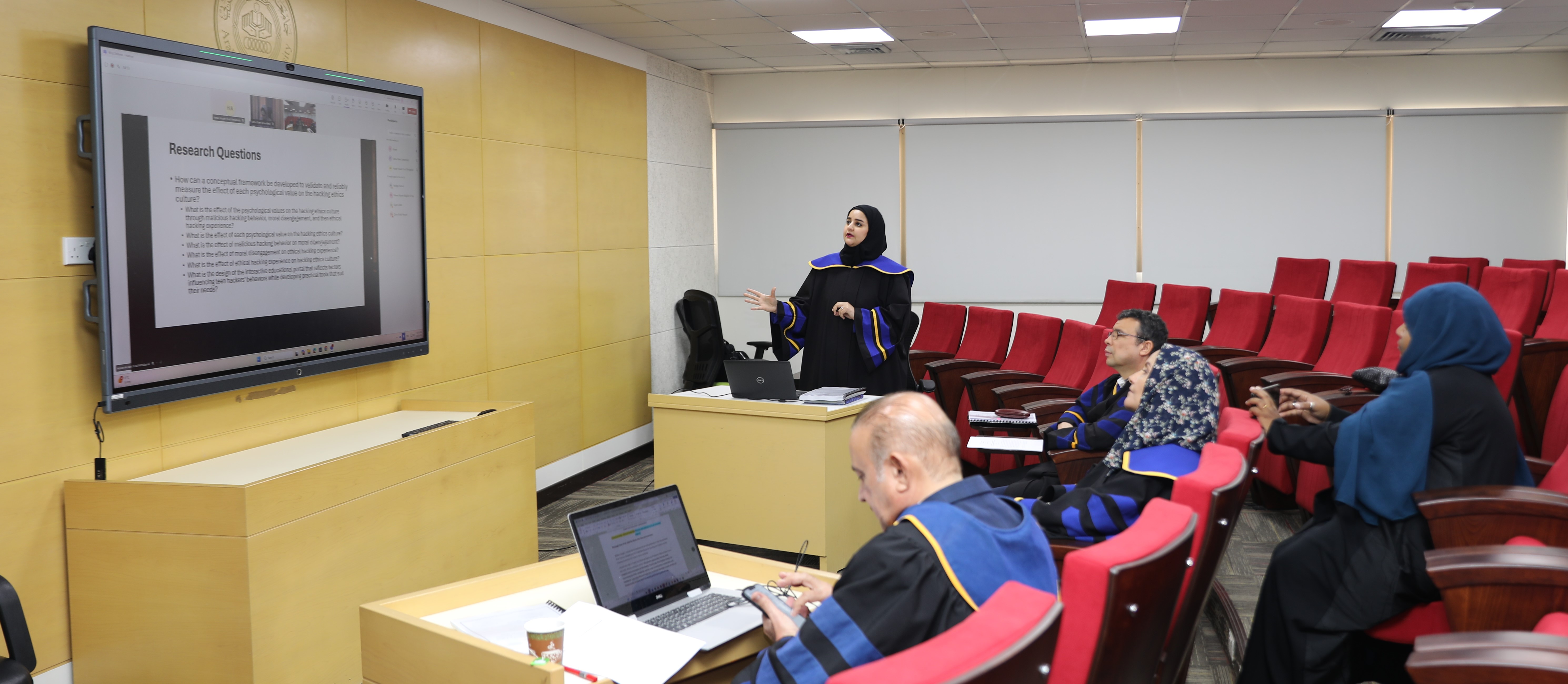
Researcher Al Mubarak Develops Conceptual Framework to Explore Factors Influencing Teen Hacker Behaviour
Arabian Gulf University
02 Jul, 2025
Hanan Hussain Al Mubarak, a researcher in the Department of Innovation and Technology Management at the College of Education, Administrative and Technical Sciences at Arabian Gulf University (AGU), has developed a conceptual framework to explore the factors influencing the behaviour of teenage hackers. This came as part of her dissertation titled “Towards a Culture of Ethical Hacking” the findings of which were discussed to fulfil her PhD requirements in Innovation and Technology Management.
Al Mubarak stated, "Ethical hacking has gained significant attention in modern cybersecurity, as both public and private sectors seek to safeguard IT infrastructure from cyber threats." She affirmed that the presence of white hat hackers within organisations can proactively identify and mitigate vulnerabilities before malicious hackers exploit them.
During her presentation, she emphasised the importance of examining ethical standards and values, which foster accountability, integrity, and legal compliance. She pointed out that the growing complexity of cybercrimes presents substantial risks, and that ethical hacking serves as an effective strategy for protecting systems, networks, and digital devices. She also noted that values and standards can influence individual behaviour within an ethical hacking culture.
The study aimed to develop a conceptual framework that assesses the influence of psychological values on the cultivation of an ethical hacking culture, namely: certainty, speed, intensity, differential correlation, differential reinforcement, imitation, and definitions. It also examined how these psychological values impact ethical hacking through factors such as malicious hacking behaviour, moral disengagement, and the ethical hacking experience.
Additionally, the research explored how malicious hacking behaviour affects moral detachment, how the latter influences the ethical hacking experience, and how this experience, in turn, shapes ethical hacking culture. The methodology included a questionnaire with 144 responses, interviews with a cybersecurity expert and eight teenage hackers, and an observation of a teenage hacking incident at an educational institution.
A framework based on previous studies was constructed to analyse the educational institution's cultural values. Qualitative data were processed using Atlas.ti and the Competing Values Framework. Hypotheses were tested through path analysis, and an "Ethical Hacking Academy for Teens" portal was developed.
Supervised by Professors Adel Bouhoula and Fairouz Mosleh, the study revealed the significant impact of psychological values on ethical hacking culture, demonstrating that educational institutions can adopt and promote such a culture. Al Mubarak’s insights shed light on the psychological factors influencing teenage hackers, offering pathways for educational institutions to effectively address these factors. The creation of the "Ethical Hacking Academy for Teens" portal aims to guide young hackers towards developing constructive ethical hacking skills and fostering responsible, positive behaviour.
